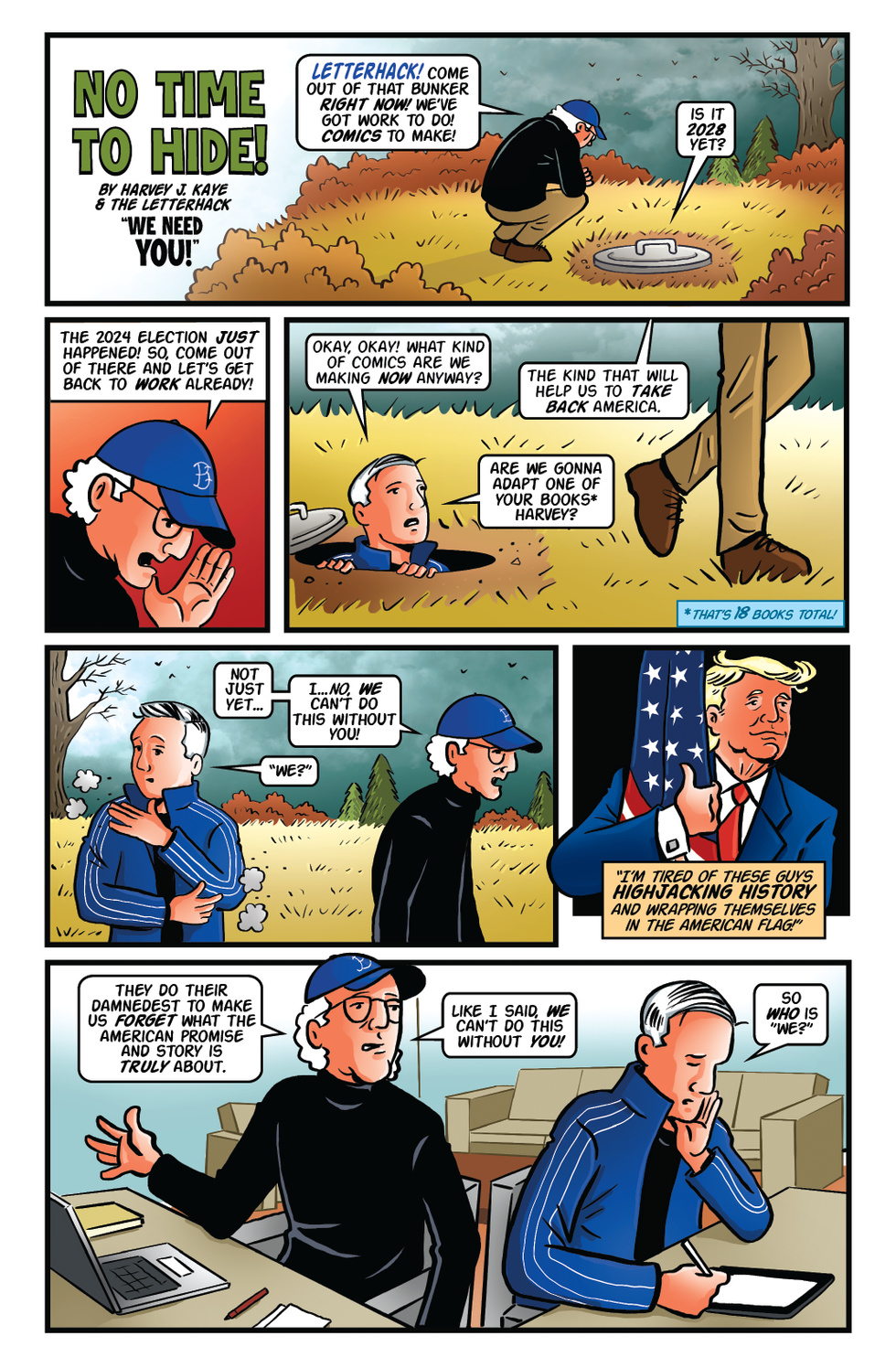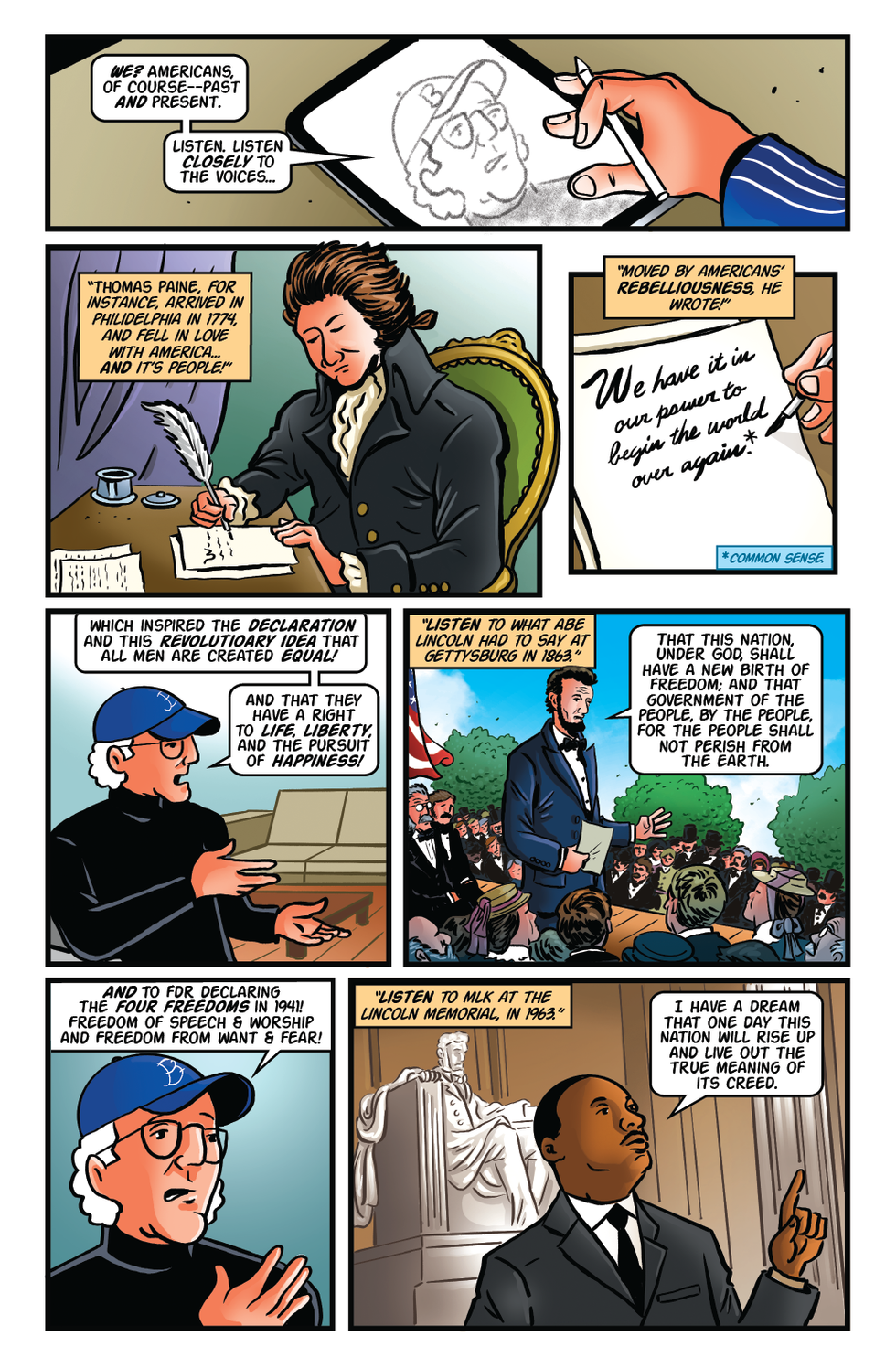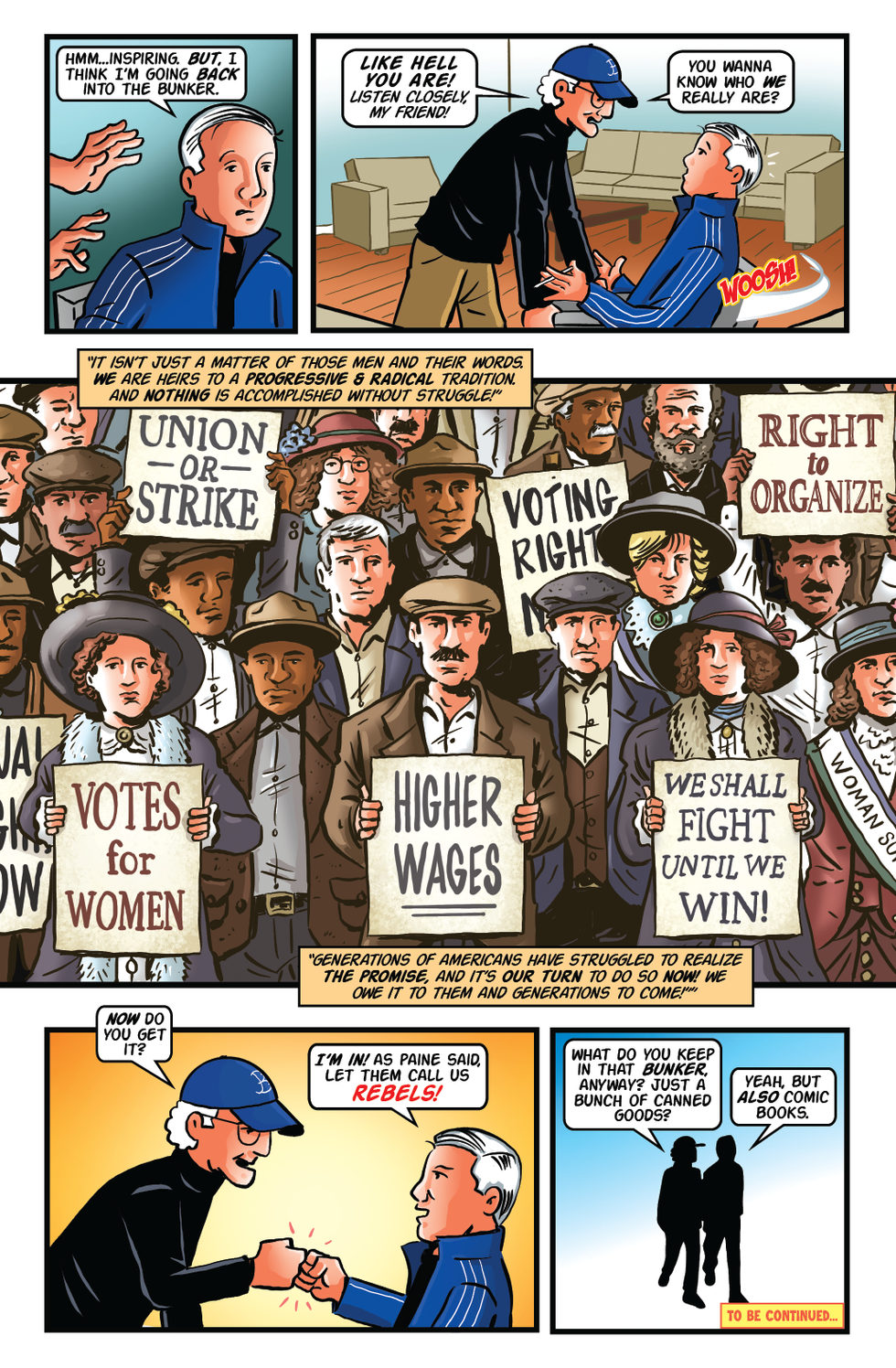No Time to Hide: We Need You!
We offer this comic-strip recalling the revolutionary promise proclaimed in the Declaration of Independence. Do not underestimate the power of that promise.
Yes. We lost. And yes, as Thomas Paine pronounced in late 1776 in The Crisis, “These are the times that try men’s souls.” Nonetheless, as we argue here, this is not a time to despair and hide away. For as Paine went on to write in that pamphlet: “The summer soldier and the sunshine patriot will, in this crisis, shrink from the service of their country; but he that stands by it now, deserves the love and thanks of man and woman. Tyranny, like hell, is not easily conquered; yet we have this consolation with us, that the harder the conflict, the more glorious the triumph.” Words that encouraged Americans to sustain the Revolution and, yes, go on to win battles and ultimately, victory.
We offer this comic-strip recalling the revolutionary promise proclaimed in the Declaration of Independence—and regularly reaffirmed by our greatest leaders—to remind us all that we, native-born and newly-arrived alike, are the children and grandchildren of generations of progressives and radicals who, in the course of almost 250 years, made that promise their own and fought to realize it.
Do not underestimate the power of that promise. And surely, you feel it too.
Consider the testimony of the great self-emancipated black abolitionist Frederick Douglass in his speech in Rochester, New York, on July 5, 1852, What to the Slave is the Fourth of July? Douglass lambasted the country and his fellow Americans: “There is not a nation on the earth guilty of practices, more shocking and bloody, than are the people of these United States, at this very hour.” And yet, in the end, even he did not surrender to despair: “Allow me to say, in conclusion, notwithstanding the dark picture I have this day presented of the state of the nation, I do not despair of this country. There are forces in operation, which must inevitably work the downfall of slavery... I, therefore, leave off where I began, with hope. While drawing encouragement from the Declaration of Independence, the great principles it contains, and the genius of American Institutions, my spirit is also cheered by the obvious tendencies of the age.”
So, yes, we lost. But the struggle continues. And in that spirit, we want you to know that when Martin Luther King, Jr. would find himself growing despondent about the state of America and the forces opposing the civil rights struggle, he would recall Thomas Paine’s revolutionary words from Common Sense: “We have it in our power to begin the world over again.”
In the weeks and months ahead, we plan to create a continuing series of comics reminding us of who we are and what that demands—and, hopefully, encouraging us all to pursue progressive and radical-democratic action.
This is not a time to seek a solitary life, but to act in solidarity.





